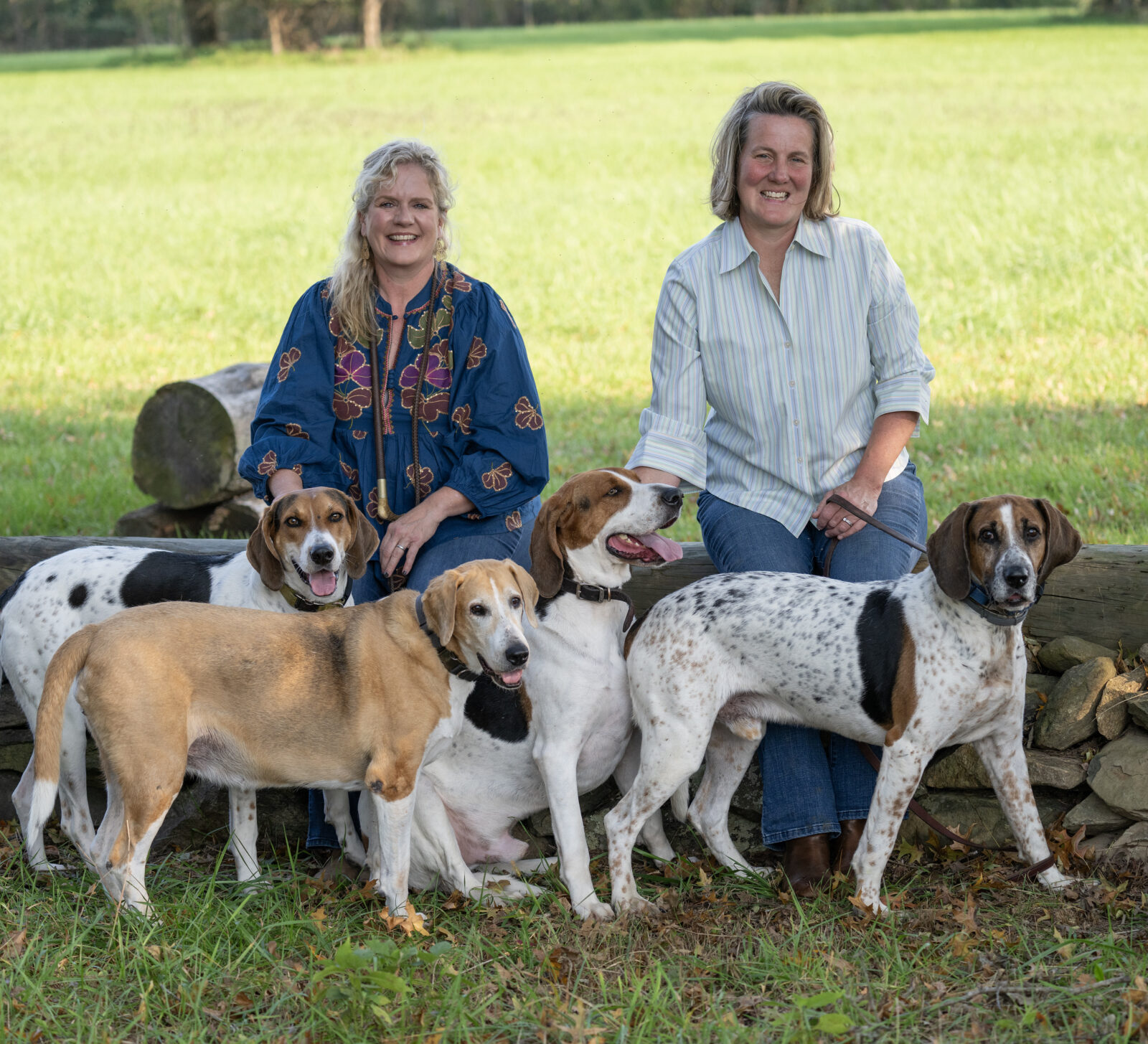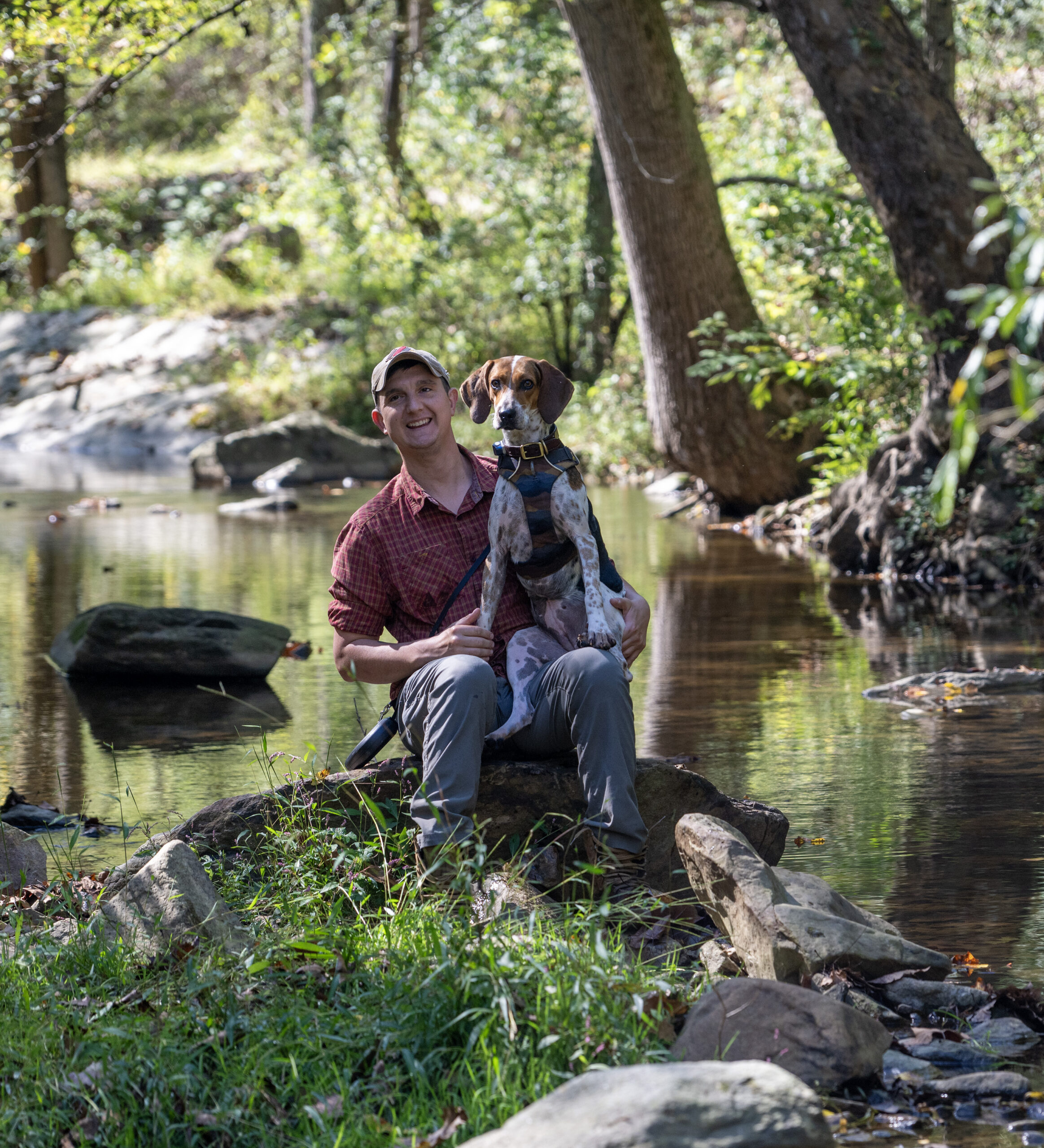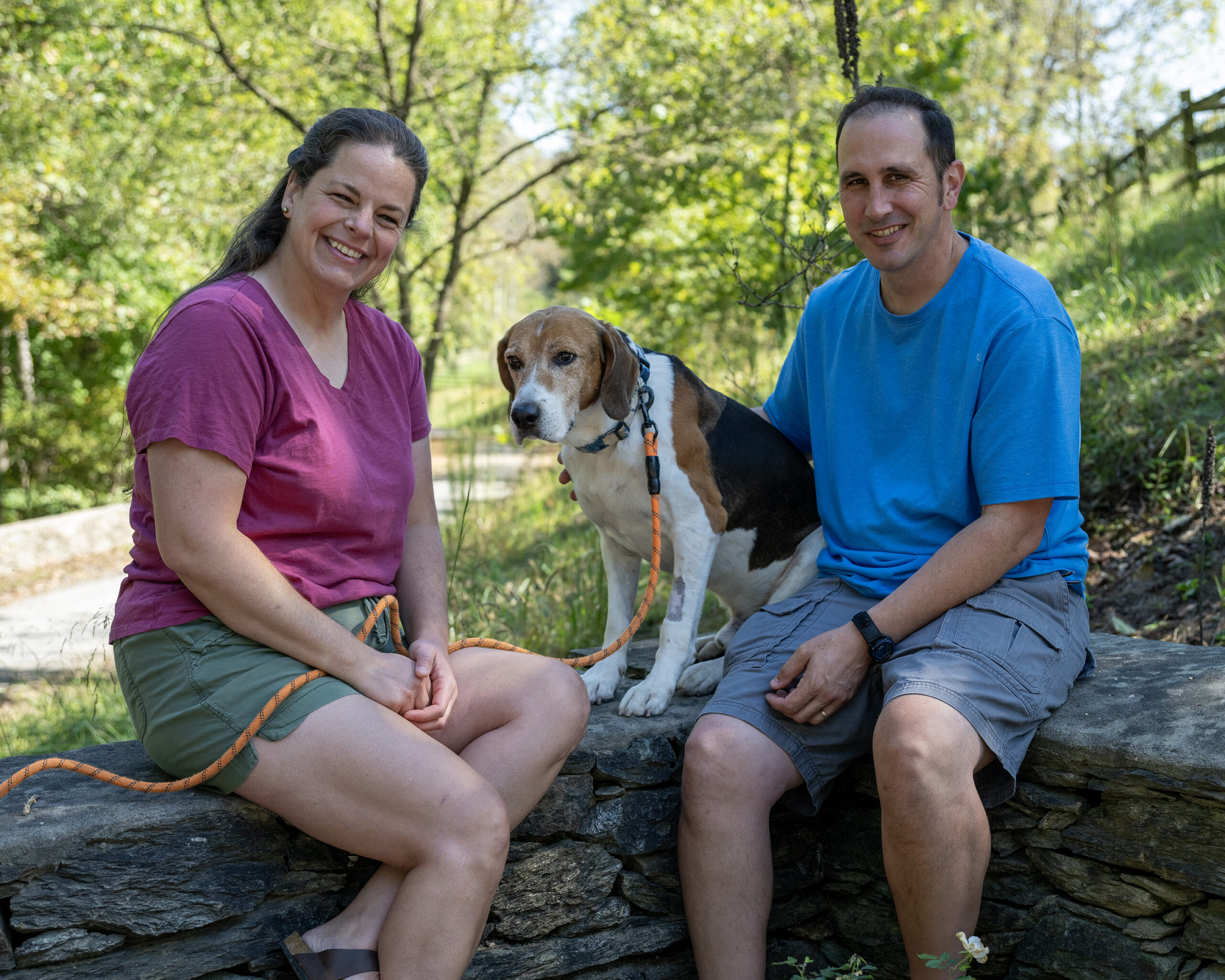Retired Hounds on the Hunt for Their Forever Home

Written by Erin Bozdan | Photos by Joanne Maisano
Northern Virginia is home to a number of foxhunting clubs, each housing around 50 foxhounds. These hounds are cared for by their huntsmen and hunt staff to stay in top shape for a day of sport with club members. Though, just like humans, as hounds age or lose enthusiasm, they retire.
The Fox Hound Retirement Program was established in 2015, founded by former Loudoun Fairfax professional huntsman Andy Bozdan. To Bozdan, it was only fair that hounds be rewarded at the end of their career with a soft place to land and a loving family with whom to live out their remaining days.
“The hounds give us so much fun and pleasure,” Bozdan says, “it was the least we could do for them if they couldn’t hunt anymore.”
The program was inspired by a hound named Alta. It became very apparent that Alta preferred being a house hound to a hunting hound. He would go out hunting, and at the end of the day, Bozdan would have to pick him up from someone’s porch.
Kim Ginn Brown, a member of the Loudoun Fairfax Hunt and Blue Ridge Hunt, was the first of many to be matched with a hound. Brown named Alta after her mother in a puppy-naming auction, which was raising money for the Hunt. Brown jumped at the chance to give Alta his soft landing, which happened to be on her very expensive Chesterfield leather couch — his favorite spot.
Brown says adopting hounds is “a way to give back to our sport and the hounds that work so hard to make it happen. Without land and hounds, our sport is not possible.”
Since Alta, Brown has had multiple hounds from different hunts and can attest to just how wonderful they are as pets. Brown and her husband, Trevor, currently have two retirees, Governor and Gina.

Another vitally important asset to the success of the program is Beth Dombrowksy. Dombrowsky, a member of the Middleburg Hunt and longtime supporter of the sport, is a professional pet sitter dedicated to providing foster care for hounds coming out of the kennel. She provides them with a leg up on basic skills needed to make the adoption process easier.
Tools like crate training, walking on a leash, and reinforcing commands, some of which the hound will have already learned during its time in kennels, are just a few things Dombrowsky teaches hounds coming into the home for the first time. Putting boundaries in place and establishing routines are key to a healthy and happy life for both the hound and its new family.
Dombrowsky and her family have personally adopted many hounds from Bozdan’s program. The most recent are brothers Spindle and Sprocket.
“I enjoy seeing the hounds flourish in their new homes,” Dombrowsky says. “I especially relish seeing individuals who have never thought of these working hounds as indoor dogs be astounded at how well they transition to a wonderful member of the family.”
Together, Brown and Dombrowsky serve as the ambassadors of the program. Their devotion, as well as support from local huntsmen, masters, and the community, have contributed to the success that the program is today.
The program also wouldn’t be possible without aid from volunteers and donors like the North American Veterinary Blood Bank, Dr. Jason Bollenbeck of Towne Animal Clinic, Blue Ridge Veterinary Associates, and The Small Animal Clinic at Piedmont Equine. Hounds receive preoperative blood work, fecal and urinalysis exams, as well as tests for tick-borne illnesses. Spay or neuter procedures are then scheduled before the hounds are sent to their new home. After their health is assessed, site visits are carried out to ensure the hound is placed with a family best suited for their personality and activity level.

In the early days of the program, Madison Ross, a local resident and kennel volunteer, played a big role in seeking out potential adopters. Katie Call and Jennifer Gibson have also helped by fostering hounds, eventually adopting through the program.
Dombrowsky and Brown are currently facilitating the placement of hounds from several different hunts across Northern Virginia, and have placed 40 hounds since 2018.
Today, after seeing the success of the FHRP, more hunts are establishing retirement programs of their own. Some already have 501(c)(3) status; others simply have hunt staff, members, and volunteers willing to help. What unites them is the goal of seeing retired hounds adopted into loving homes.
Brown says her hope for the future is “that all hunts have a similar program. We also want to dispel the notion that working dogs cannot make good pets. It is our goal to demonstrate that with proper training and environment, retired foxhounds make the absolute best cuddly couch potatoes!” ML
To adopt or sponsor a hound, host a fundraiser, or make a donation, contact Kim Ginn Brown at (703) 395-2941.
Published in the November 2024 issue of Middleburg Life.








